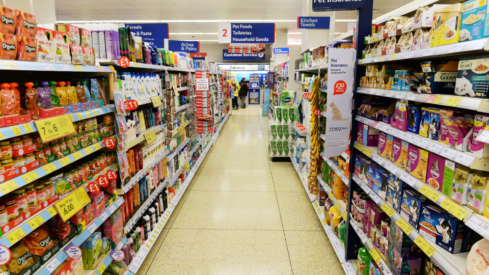Analysis: How prices of canned pet food could increase up to 30%

A proposal to impose higher tinplate steel tariffs in the US is expected to drastically impact the industry.
A new measure under consideration at the International Trade Commission (ITC) and the US Department of Commerce to increase the tax applied to imported tinplate steel by up to 300% is expected to have a noticeable impact if adopted.
The Pet Food Institute (PFI) warns that imposing these additional tariffs on consumer goods will increase the production costs of canned cat and dog food. “Those costs will be passed down to Americans who rely on affordable, quality canned pet food,” the PFI warns.
The US does not manufacture a sufficient supply of tinplate steel and relies on imports from other countries. The trade association representing American pet food and treat manufacturers told GlobalPETS that around 62% of tinplate steel was imported last year.
The new tariff hike is believed to apply to tinplate steel imported from Canada, China, Germany, the Netherlands, South Korea, Taiwan, Turkey and the UK.
The impact
Consumer Brands Association (CBA) stated that if the tariffs go into effect, companies will be forced to raise food prices, which could decrease domestic output, placing up to 2,800 tinplate manufacturing jobs in danger.
It is estimated that the cost of canned food and products could increase between 19% and 30% if the new tariff receives the green light from US officials. Additionally, up to 40,000 manufacturing jobs could be cut.
According to CBA, this additional cost would be mainly transferred to the end consumer, which could be between $0.36–0.58 cents (€0.33–0.53 cents) more per can across all food categories. The PFI says there is no reason to believe “the cost difference for pet food is any less than for standard canned food, from a percentage basis.”
Wet food
The tariffs could considerably impact wet cat food as it takes up the largest percentage of sales after dry food, representing 45%.
“The pet food space will not be spared—it’s another important industry that would be forced to absorb the negative impacts of the tariff at their and consumers’ expense,” added Tom Madrecki, Vice President of Supply Chain and Logistics at the CBA.
According to NielsenIQ, sales of wet pet food in the first three months of 2023 reached $9.1 billion (€8.4B) in the US. This is up from $7.8 billion (€7.2B) in Q1 2022.
Fighting the decision
GlobalPETS learned that the PFI is to launch a consumer advocacy campaign to encourage Congressional representatives to communicate to the ITC and Department of Commerce that they are concerned about higher consumer prices as a result of the tariffs.
Earlier in June, 36 members of Congress wrote a bipartisan letter to President Joe Biden urging him to oppose the tariffs.
“If imposed, tariffs would lead to additional costs on domestic manufacturers and consumers at a time of already high inflation and grocery prices,” it reads. Lawmakers also highlight that canned food items become a crucial low-cost option for American families.
Tariffs also saw an increase during Donald Trump’s presidency when he chose to impose import tariffs on both steel and aluminum. The trade law on tariff imports was authorized based on the “potential impact on national security.” As a result, China retaliated and imposed up to 25% on canned pet food on imports from the Asian country to the US.
